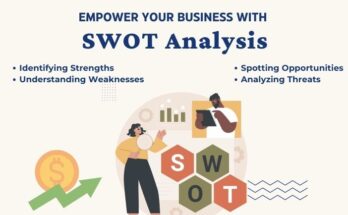In the early stage of any venture, business, and startup terms are used interchangeably. In actuality, both terms have significant differences. The focus of one is customer acquisition whereas the other focuses money on the table. One tries to innovate where as another focus on the livelihood of the doer. If you are going to start something of your own or do something, you need to understand which path to choose, to achieve your goal. In many cases, the unawareness of difference leads to the deviation in results from expected. Whether a startup or a small business is better depends on various factors and individual circumstances. Here are some considerations to help you make an informed decision:
Growth Potential: Startups typically aim for rapid growth and disruptive innovation. If you have a groundbreaking idea, prefer high-risk/high-reward ventures, and are willing to scale quickly, a startup might be the right choice. On the other hand, if you have a more traditional business idea with steady growth potential, a small business might be more suitable.
Funding: Startups often require significant investment to fuel their growth. They may seek venture capital funding or angel investors to support their operations. If you have a unique idea that requires substantial capital, a startup could be a better fit. Small businesses, on the other hand, can often be bootstrapped or funded through personal savings and loans.
Risk Tolerance: Startups are generally riskier due to their innovative nature and uncertainty surrounding market acceptance. If you are comfortable with higher risk and can handle potential failure, a startup may be a good choice. Small businesses typically have a more stable and predictable environment, making them a safer option.
Market and Industry: Consider the market conditions and industry landscape. Some industries are more conducive to startups, such as technology, software development, and biotech, where disruptive ideas can thrive. Other sectors, such as local services or niche markets, may be better suited for small businesses that cater to specific customer needs.
Ownership and Control: Startups often attract founders who seek to build scalable businesses and potentially exit through acquisitions or IPOs. However, this may involve giving up a larger portion of ownership to investors. Small businesses offer more control and autonomy over decision-making, allowing owners to shape the business according to their vision.
Time Commitment: Startups typically require intense dedication and long hours to achieve success. If you are willing to invest significant time and effort, a startup might be the right choice. Small businesses can offer a more balanced lifestyle with flexible working hours, although they still require commitment and hard work.
Ultimately, the “better” option depends on your personal goals, risk appetite, industry dynamics, and available resources. Carefully assess your circumstances and align them with the advantages and challenges of both startups and small businesses to make an informed decision. Want to have more clarity on your enterprise-related issues and challenges, start following MSME HelpDesk on Linkedin Facebook YouTube, etc. Get Connected…Get Benefitted !!

